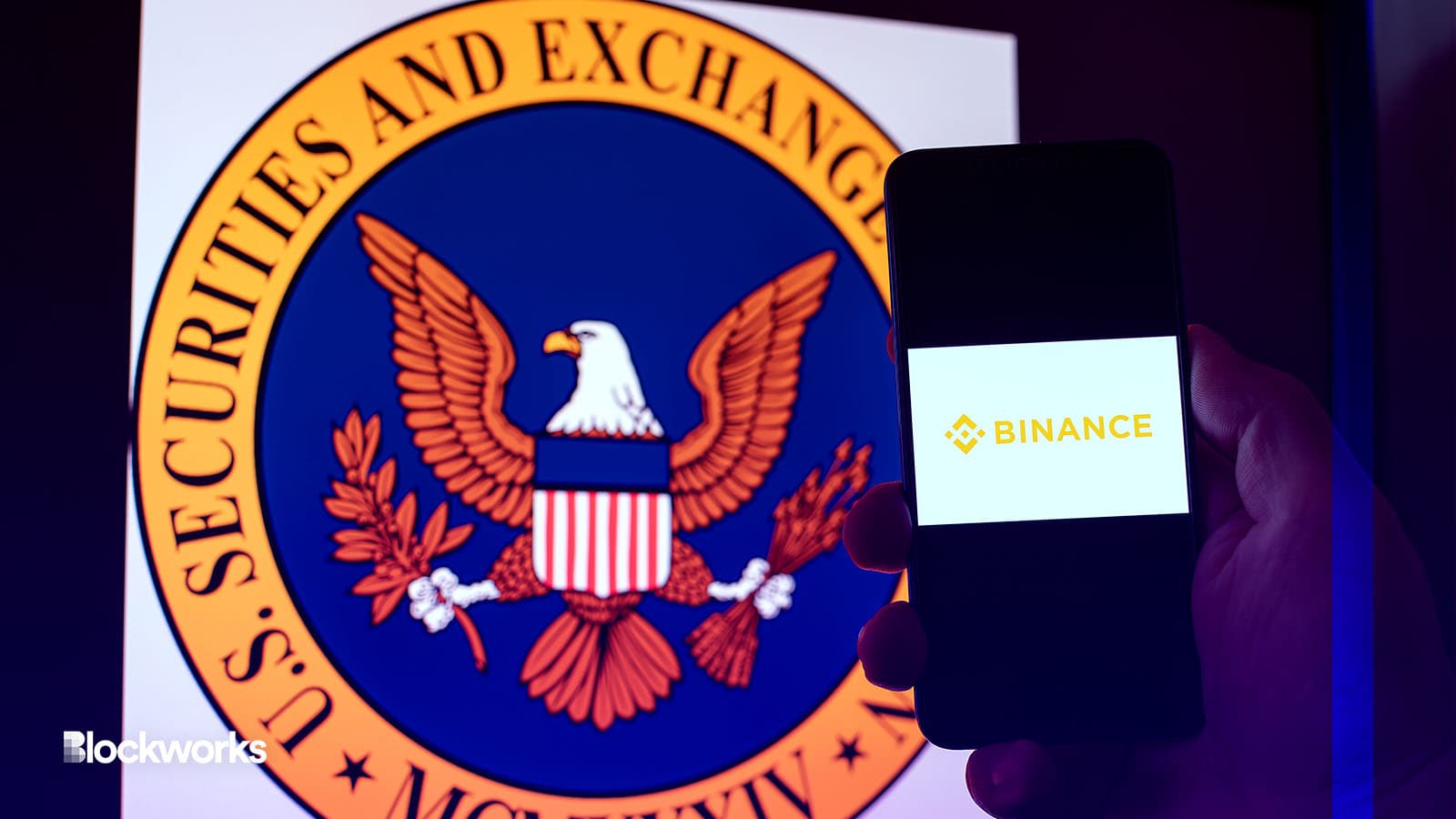SEC demands more cooperation from Binance in document discovery
Binance.US declined to provide certain documents, stating they don’t exist, but the SEC later obtained some of these documents from other sources, the regulator said.

Artsaba Family/Shutterstock, modified by Blockworks
The Securities and Exchange Commission (SEC) has alleged that Binance failed to furnish adequate documents, despite having agreed to expedited discovery.
BAM, the entity operating Binance’s US affiliate, submitted about 220 documents, many of which comprised incomprehensible screenshots and documents lacking dates or signatures, the SEC’s attorneys said.
The entity also declined to provide crucial witnesses for deposition, opting instead for only four depositions of witnesses it independently selected, according to documents unsealed on Thursday.
“[BAM] has responded to requests for relevant communications with blanket objections and has refused to produce documents kept in the ordinary course of its business, claiming those documents do not exist, only for the SEC to later receive such documents from other sources,” the SEC said in the filing.
Binance.US didn’t return Blockworks’ request for comment by press time.
Last month, Binance.US submitted a motion for a protective order, aiming to restrict the SEC to four depositions of BAM employees.
This motion sought to prevent the SEC from accessing all communication from BAM, with the defendants asserting that numerous topics the SEC is pursuing are unrelated to customer assets.
This week, the SEC and Binance entities filed a joint protective order to designate sensitive information as confidential.
Consequently, confidential or non-public data must be submitted as protected materials, with access limited exclusively to the judge, legal counsel, plaintiffs, defendants and court-approved non-parties.
In documents unsealed Thursday, the SEC also expressed apprehension regarding Binance.US’s utilization of Ceffu, a custody service connected to Binance, which appeared to contravene a prior agreement aimed at preventing the diversion of assets overseas.
The SEC said it observed inconsistencies in BAM’s statements regarding the roles of Ceffu and Binance in the management of wallets and customer funds.
“BAM indicated that, contrary to the terms of the Consent Order, it may have entrusted a Binance Entity with custody and control of its crypto assets and Customer Crypto Assets in violation of the Consent Order,” the agency said.
In a blog on Sept. 15, Ceffu rejected the SEC’s claims that it provided third-party wallet custody software and support services to Binance.US. However, the exchange’s website states that it is the “only institutional custody partner of the Binance Exchange.”
The firm separately told Blockworks that it is not a Binance entity and operates as an independent provider.
Binance has faced hurdles following the SEC’s lawsuit, which includes 13 charges such as operating unregistered exchanges and issues related to the Binance.US affiliate.
Several Binance.US executives, including CEO Brian Shroder, head of legal Krishna Juvvadi and chief risk officer Sidney Majalya, have recently departed the company amid two rounds of layoffs.
An upcoming hearing focusing on the protective orders is scheduled for Sept. 18 at 1:00 pm ET.
Updated Sept. 18, 2023 at 4:44 am ET: Clarified that Ceffu claims to be a Binance partner but not a Binance entity.
Get the news in your inbox. Explore Blockworks newsletters:
- The Breakdown: Decoding crypto and the markets. Daily.
- 0xResearch: Alpha in your inbox. Think like an analyst.






